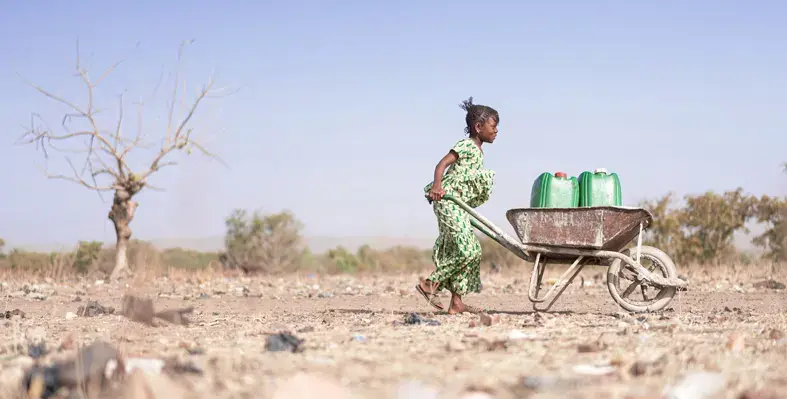The El Nino Drought Action Committee (DAC) was set up by the Food and Agriculture Organisation of the United Nations (FAO) and the Government of Zimbabwe through the Ministry of Lands, Agriculture Water, Fisheries and Rural Development (MLAFWRD), to develop mitigation strategies to combat the devastating impacts of El Nino-induced drought
To set up the DAC, a multi-stakeholder meeting was conducted in the first week of May, attended by more than 60 key stakeholders representing all provinces and sectors in Zimbabwe. The DAC will be responsible for coordinating all drought response interventions to save lives in the immediate-term and build climate-resilient livelihoods and agrifood systems in the longer-term.
The committee’s primary interventions are to develop short- and long-term mitigation measures in the agriculture sector in particular areas on crops, water, livestock, fisheries, agriculture, and irrigation. Working in close collaboration with the FAO and key stakeholders, the MLAWFRD through the Food Security and Livelihoods cluster, the sectoral response strategy is aligned to the Drought Risk Management Strategy 2017-2025 and the El Nino Response Plan (April 2024).
During the meeting, the MLAFWRD presented the proposed Terms of Reference (ToRs) of the DAC including the expected deliverables and timelines in alignment to the Drought Response Plan. Stakeholders had the opportunity to deliberate on the proposed ToRs with the objective to formulate co-owned realistic and measurable interventions that clearly spell out roles and responsibilities of the DAC. The meeting outlined the sectors that need specific response strategies and required resources as well as the proposed resource mobilisation strategy.
Sub-committees that will spearhead implementation of the El Nino mitigation strategy, were also agreed upon during the meeting. These include wheat, crops, livestock and fisheries, horticulture, irrigation, grain mobilisation, strategic grain reserve, water and WASH, mechanisation, data and knowledge management. Each sub-committee will be responsible for developing an action plan and implementing matrix with timelines and key deliverables, the progress of which will be continuously monitored and reported to the main committee.
“We gathered as key stakeholders in the Agriculture sector to coordinate our efforts and create synergies as we address the ongoing El Nino-induced drought that is ravaging our country," asserted chief director, Business Development, Markets and Trade in the MLAFWRD, Clemence Bwenje. "Together, we have the power to overcome the challenges posed by drought and build a more resilient and sustainable future for all. The formation of the Drought Action Committee marks a crucial step forward in our collective journey towards a drought-resilient nation.”





